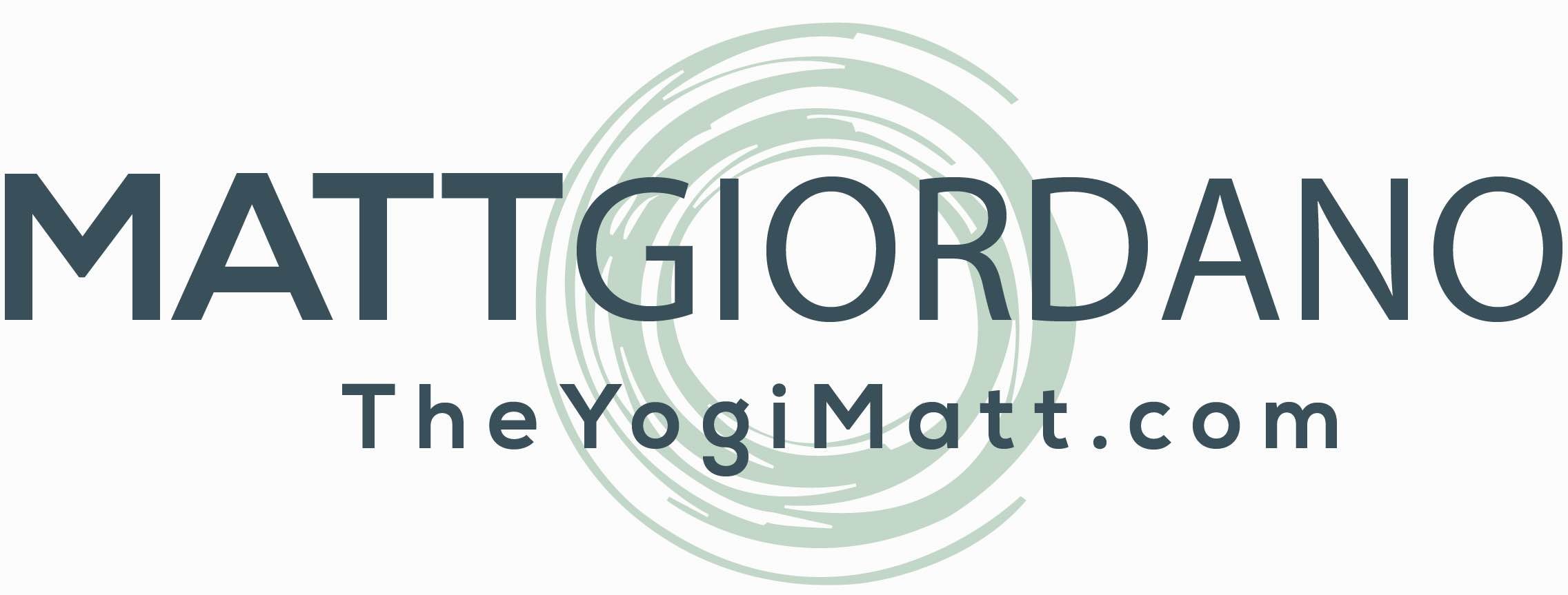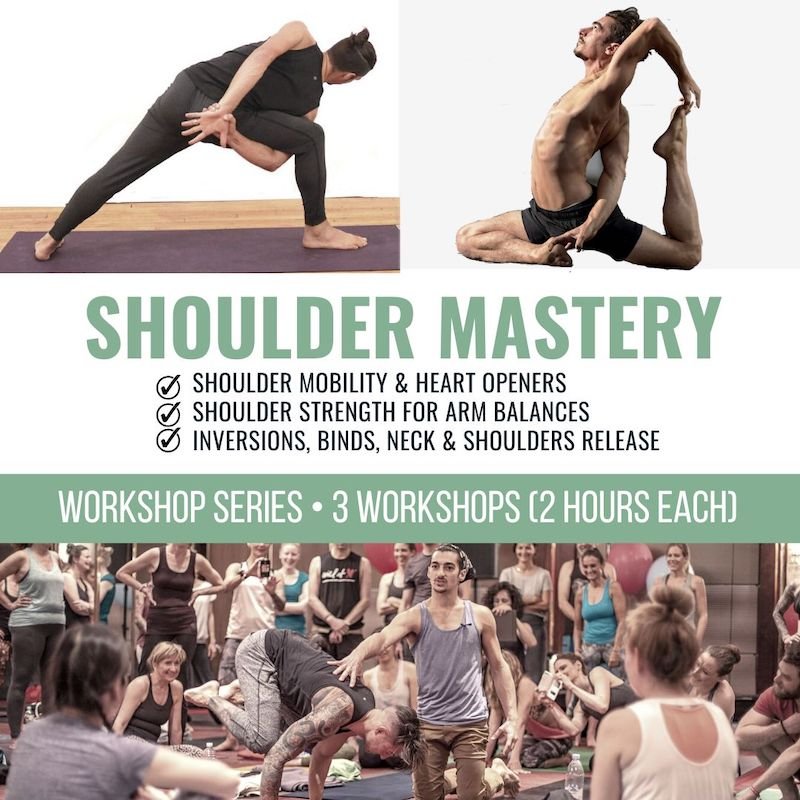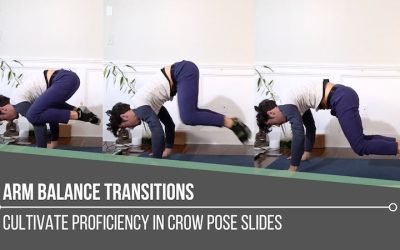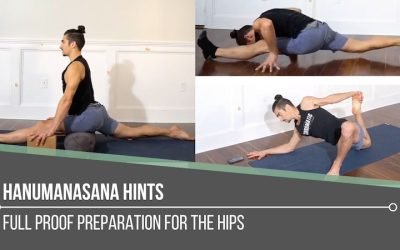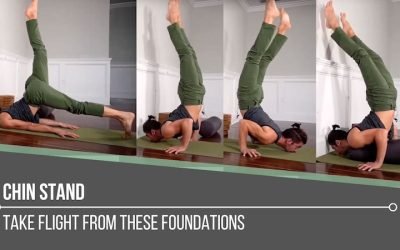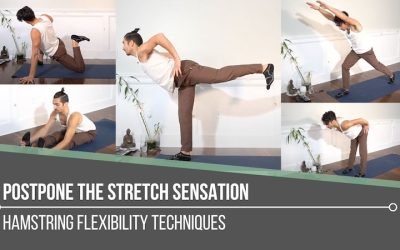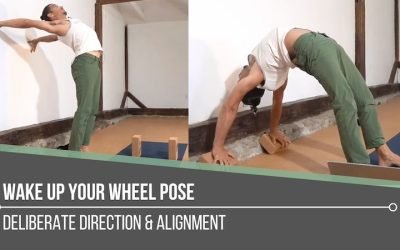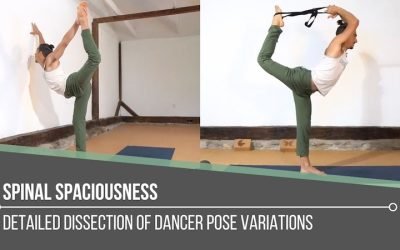Arm Balance TransitionskakasanaARM BALANCE TRANSITIONS Arm balance postures can be challenging enough without attempting to layer on a smooth transition in and out of them. However, fluid transitions are a natural progression in our yoga practice; they also provide...
Deep Dive Into Chaturanga
Deep Dive Into Chaturanga
Shoulder Action Controversy
shoulder stability
DEEP DIVE INTO CHATURANGA
Earlier this week, Matt posted a video on his Instagram page highlighting the shoulder blade movement that takes place in Chaturanga—moving from protraction to retraction. This can be a tricky subject, and it was cause for some discussion in the comments on that video. He goes into more detail here.
When we’re taught to do something (such as the execution of a yoga posture) a certain way, it may be difficult to consider an alternative. The Chromatic yoga approach, however, is a nondogmatic one and requires that we create our own understanding through action and being open to new possibilities. There is always room for perspective. Now, Chaturanga can be a challenging posture due to the strength it requires, but in today’s video, we see a breakdown of the steps and gain insight into the anatomy in order to make informed choices in our yoga practice.
SHOULDER MASTERY
WORKSHOP SERIES
- 3 livestream workshops and replays
- Nondogmatic and effective alignment
- Improve low-back health
- Shoulder mobility + heart openers
- Shoulder strength + arm balances
- Inversions, binds, neck & shoulder release
- 6 hours of continued education
- Gain strength and stability
- Increase range of motion, flexibility, and mobility
- Step-by-step guidance: Everyone can follow and participate
- Educationally infused: Learn while you embody
- Livestream optional; all workshops available as livestreams (see dates below) and as on-demand replays for life
- Automatically receive access to the replays immediately after the livestream
SEQUENCING FOR THE SHOULDERS
The intelligent sequencing offered in a Chromatic yoga class helps us prepare our bodies for optimal positioning in a given posture.
In Chaturanga, there is a tendency for the scapulae to anterior tilt, causing the shoulders to punch forward into the anterior portion of the shoulder capsule. Over time, this can cause pain and/or increased wear and tear on the joint, not to mention the implications it may have for the neck, shoulders, back, and chest. What’s necessary is a healthy degree of external rotation. Matt demonstrates a few drills with a strap and blocks that help pattern the body in how to create the external rotation required for the pose. Why is this important? These drills teach us how to strengthen the rotator cuff muscles, which will help stabilize the shoulder joint and recruit the serratus anterior for a stronger descent in Chaturanga.
WATCH THE VIDEO
DEEP DIVE INTO CHATURANGA: SHOULDER ACTION CONTROVERSY
STRAP SETUP FOR THE SHOULDERS
These drills help us understand the foundations of the shoulder mechanics for Chaturanga.
Pull the Strap Apart
Here are the four key actions:
- Take an underhand grip of the strap.
- Pull the strap apart.
- Move the shoulder heads back.
- Bring the elbows in and forward.
This drill is not static; when watching the video, we see that there is actually movement back and forth, which will help strengthen the rotator cuff muscles.
Block in the Palm & Between the Elbow and the Body
This drill can be done without a block; however, the block between the body and elbow adds that extra awareness of activation and reminds to keep our elbows more narrow.
Essentially what’s happening here are movements back and forth between the internal and external rotation of the humerus. Holding the additional block in the supinated palm of the same arm helps emphasize the required external rotation for Chaturanga.
STRAP SETUP FOR THE SHOULDERS
These drills help us understand the foundations of the shoulder mechanics for Chaturanga.
Pull the Strap Apart
Here are the four key actions:
- Take an underhand grip of the strap.
- Pull the strap apart.
- Move the shoulder heads back.
- Bring the elbows in and forward.
This drill is not static; when watching the video, we see that there is actually movement back and forth, which will help strengthen the rotator cuff muscles.
Block in the Palm & Between the Elbow and the Body
This drill can be done without a block; however, the block between the body and elbow adds that extra awareness of activation and reminds to keep our elbows more narrow.
Essentially what’s happening here are movements back and forth between the internal and external rotation of the humerus. Holding the additional block in the supinated palm of the same arm helps emphasize the required external rotation for Chaturanga.
200 HOUR ONLINE TEACHER TRAINING
GET CERTIFIED & DEEPEN YOUR YOGA PRACTICE
- Deepen your yoga practice
- Build confidence speaking in front of groups in person and online
- Learn foundational class structures and templates
- Learn techniques for a wide range of yoga postures
- Get certified and highly qualified to teach yoga
- Yoga Alliance Globally Recognized Certification Program
CHATURANGA AT THE WALL
Transitioning to Chaturanga at the wall takes us to a closer setup of what position our bodies will be in. Of course, we are perpendicular to the floor in this variation, but we can negotiate hand and shoulder placement without the strength element. Matt has shown us variations at the wall before, and they are always helpful in navigating a posture.
One of the key points in this variation, however, is the push through the heel of the hands. This action both brings the bottom wing tip of the scapulae through the arm bone, which encourages the head of the humerus to pull back, and it helps recruit the muscles of the serratus anterior. We also gain a “band of stability” in the upper body once this is in place. Once we’ve explored here, it’s time to take Chaturanga to the mat.
300 HOUR ONLINE TEACHER TRAINING
GET 500 HOUR CERTIFIED AS A MASTER TEACHER
Master your skill set as a teacher through refined techniques, anatomy, biomechanics, sequencing, philosophy, meditation techniques, theming, yoga business, and much more!
- Get 500 hour certified
- Learn anatomy, biomechanics, asana techniques
- Expand your teaching skills
- Masterful sequencing and verbal delivery
- Learn meditation and breathwork techniques
- Transformative tools: theming, dharma talks, satsang
WHY PROTRACTION TO RETRACTION?
In the video, Matt demonstrates how the shoulder blades come in towards one another on the descent portion of Chaturanga. This is what might conjure up some controversy. Matt explains that we’re not just easily allowing them to come together; instead, we’re still trying to resist the retraction in the lowering phase until we’re almost at the ground level. It’s therefore a “fight” between the actions of protraction and retraction of the scapulae.
Remember the “push through the heel of the hand”? This ignites the protraction. The goal is to allow the shoulder blades to retract at a slow pace. Too often, we find that if there is no retraction, we can fall into the anterior tilt of the scapulae more easily. If there is no movement of the scapulae, it can affect the muscles in the front and the back of the neck by causing more strain.
ALLOW MOVEMENT TO TAKE PLACE
In this full workshop (The Shoulder Reset), Matt explains that going from protraction to retraction means that we are allowing the shoulder joint to move as it was designed. We are allowing gravity to do its job. When allowing the movement from protraction to retraction to take place, we are creating an eccentric contraction, which will offer a smooth descent. It will also translate into creating lightness and ease in a jump back.
The good news is that Matt’s offering a 3-part workshop series this month, Shoulder Mastery The education we can look forward to will have a profound effect on our yoga practice overall.
Part I is all about shoulder mobility and heart openers, and Part II delves into shoulder strength and arm balances. Part III tackles inversions, binds, and neck & shoulder releases.
Click Shoulder Mastery to register.
See you on the mat!
The 200 Hr. Teacher Training: Click Here to See the Next Start Date
The 300 Hr. Advanced Teacher Training: Click Here to See the Next Start Date
Article by Trish Curling
Videos Extracted From: The Shoulder Reset
ONLINE ANATOMY COURSE
- Accessible, exciting, and easy to learn
- Anatomy and biomechanics for yoga
- Appropriate for both teachers and students
- Learn joint alignment vs pose alignment
- Demystify yoga poses and transitions
- Release aches and pains
- Learn how to avoid common injuries
- Caters to all levels with modifications and props
- 20 hours Continued Education Credits with Yoga Alliance
- 20 hours toward Chromatic Yoga Certification and 300 Hour
- Lifetime access
Continue Learning
Arm Balance Transitions
Hanumanasana Hints
Hanumanasana HintssplitsHANUMANASANA HINTS Applying intelligent techniques to a posture like Hanumanasana is crucial—simply hoping for the best is definitely not the way to go! That mindset leaves us vulnerable to injury. Hanumanasana is also the type of pose that can...
Chin Stand
Chin Standganda bherundasanaCHIN STAND Without a doubt, Chin Stand requires preparation. This posture must be approached with the utmost humility, essential in order to respect the potential risk. If this pose is not explored regularly in our physical practice, it may...
Postpone The Stretch Sensation
Postpone the Stretch SensationflexibilityPOSTPONE THE STRETCH SENSATION If one of the goals of our physical yoga practice is to increase flexibility, we may automatically believe that we just need to stretch more. It’s critical that we understand that increasing...
Wake Up Your Wheel Pose
Wake Up Your Wheel Poseheart openerWAKE UP YOUR WHEEL POSE We don’t have to question it—we know whether or not we’re feeling open, free, and strong in Wheel Pose. There’s a lightness and expansiveness that takes over when everything falls into place: From the initial...
Spinal Spaciousness
Spinal Spaciousnessdancer poseSPINAL SPACIOUSNESS Some key indicators of spinal health include strong bones, durable yet flexible ligaments, supple discs, and strong supportive muscles. Aside from nutrition, it’s not enough to say that movement in general is enough to...
THE FREE TECHNIQUE PACK
When You Subscribe, You Will Get Instant Access to
- the Technique Pack: 15 yoga pose breakdowns
- exclusive online course discounts
- exclusive blogs and videos
